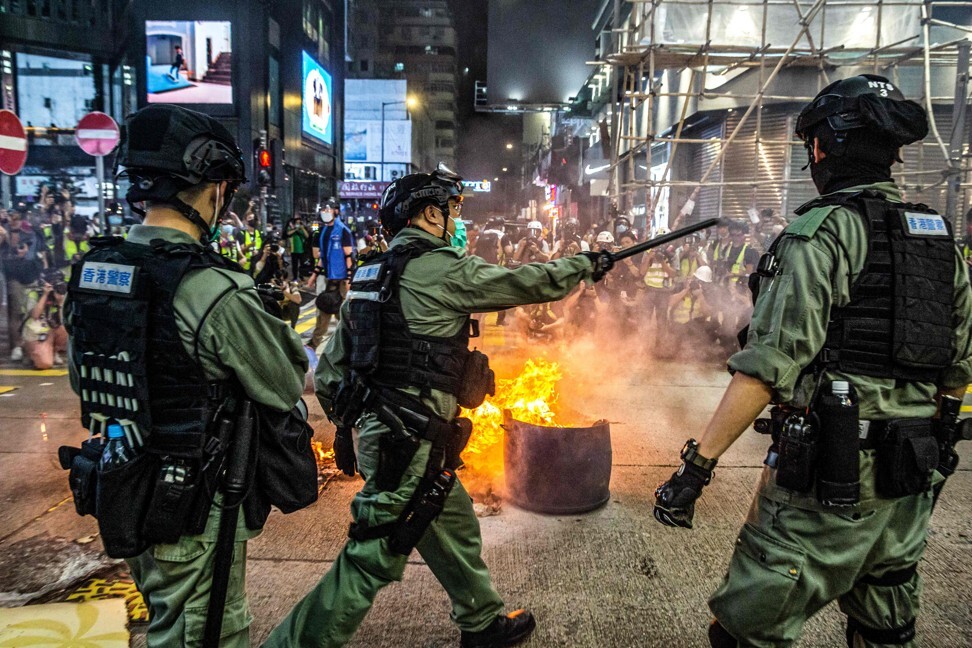Hong Kong is no longer
autonomous from China, US
determines, as Mike Pompeo
makes certification that may
mean sanctions
autonomous from China, US
determines, as Mike Pompeo
makes certification that may
mean sanctions
- ‘It is now clear that China is modeling Hong Kong after itself,’ US secretary of state announces
- Move could jeopardise Hong Kong’s special trade status with the United States

SCMP,
28 May, 2020
In a huge blow to Hong Kong, the Trump administration informed the US Congress on Wednesday that the city is no longer suitably autonomous from China. The assessment is a crucial step in deciding whether Hong Kong will continue to receive preferential economic and trade treatment from the United States.
“No reasonable person can assert today that Hong Kong maintains a high degree of autonomy from China, given facts on the ground,” US Secretary of State Mike Pompeo said in a statement. “This decision gives me no pleasure. But sound policy making requires a recognition of reality.”
The State Department’s certification is a recommendation and does not necessarily lead to an immediate next step. US officials, including President Donald Trump, now must decide to what extent sanctions or other policy measures should be levelled on the city.
“While the United States once hoped that free and prosperous Hong Kong would provide a model for authoritarian China, it is now clear that China is modeling Hong Kong after itself,” Pompeo said.
Under the Hong Kong Human Rights and Democracy Act passed by the US Congress in November, the administration must decide annually whether governance of Hong Kong is suitably distinct from China.
Options available to the administration – which may in part depend on Beijing’s reaction, analysts said – include higher trade tariffs, tougher investment rules, asset freezes and more onerous visa rules.
The move sent shock waves through China and Hong Kong policy circles.
“Wow,” said Bonnie Glaser, director of the China Power Project at the Centre for Strategic and International Studies.
“I fully expect the US to proceed with sanctions on individuals and entities deemed to be undermining Hong Kong’s autonomy,” she continued. “Secondary sanctions are possible on banks that do business with entities found in violation of law guaranteeing Hong Kong’s autonomy.”
Analysts noted a long-standing dilemma faced by successive US administrations: if Washington imposes sanctions on Hong Kong, it risks hurting residents of the city at least as much as it penalises Beijing.
Following through on threats to change Hong Kong’s status will have a hugely negative impact on US companies operating there as well as on Hongkongers while having a minuscule effect on China, said Nicholas Lardy, a fellow at the Peterson Institute for International Economics.
“And I don’t know why we want to punish the citizens of Hong Kong for something that the government in Beijing is doing,” he added.
Others echoed such concerns, assuming the US follows through with stiff sanctions.
“I believe that this will hurt Hong Kong people in myriad ways,” said Richard Bush, a fellow with the Brookings Institution and author of Hong Kong in the Shadow of China: Living with the Leviathan. “Among other things, it will confirm the People’s Republic of China view that the US wants to undermine its rule of Hong Kong.”
Hong Kong police fire pepper
rounds at protesters
opposing national anthem
law



No comments:
Post a Comment
Note: only a member of this blog may post a comment.